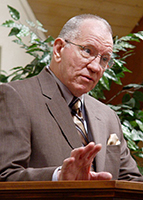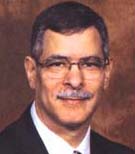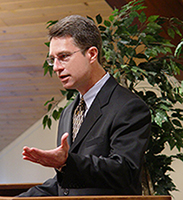 Albert N. Martin
Albert N. Martin
AUDIO
The following is a transcript of a sermon delivered on Thursday morning, October 20th, 2011, during the Annual Pastor’s Conference at Trinity Baptist Church in Montville, NJ. The preacher is Pastor Albert N. Martin and this is the seventh session in the conference.
If I were to take a text as a launching pad for what I want to convey to you this morning it would be a text such as John 5 and verse 39, where Jesus said,
“You search the Scriptures because you think in them you have eternal life and these are they which bear witness of Me.”
Our grand and glorious calling as ministers of the new covenant is succinctly identified in several places by the apostle Paul. One of them is Ephesians 3 and verse 8 where Paul speaks of his commission to be found preaching to the Gentiles what he calls the unsearchable riches of Christ, or, in the language of Colossians 1, having mentioned the Lord Jesus, he said, “whom we proclaim, teaching and admonishing every man that we may present every man perfect or mature in Christ” and he says, it is to that ministry I give myself, laboring, agonizing, but according to His working which works in me mightily.
And in the light of this calling, to preach the unsearchable riches of Christ, to proclaim Christ to every man, you and I must learn how to use the law, not only in the ways already highlighted during this conference—and I would simply, for what it’s worth, underscore in yellow and orange and red highlighters and under-liners, the various ways you and I have been instructed from the Scriptures that God would have us use His holy law, but in the light of this calling to proclaim the unsearchable riches of Christ, I want to suggest in these two final sessions that we must learn by God’s grace and through the Scriptures how to make the preaching of the law a means of making Christ more fully known, more implicitly trusted, more passionately loved and more diligently obeyed and if to any degree what I attempt to do behind this desk today leads to those ends, then I will not have labored in vain–
How to preach the law so that Christ Himself will be more fully known, more implicitly trusted, more passionately loved and more diligently obeyed.
Continue reading The Pastor’s Use of the Law I →





